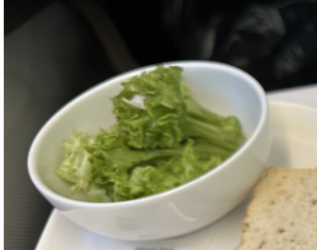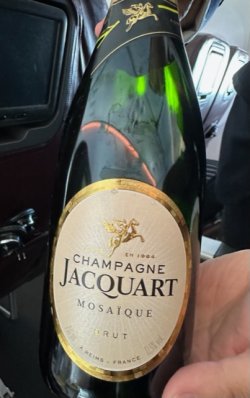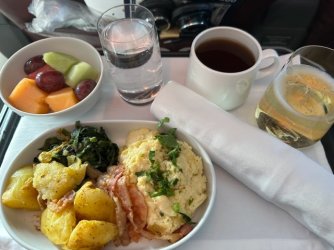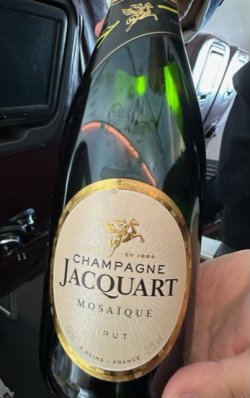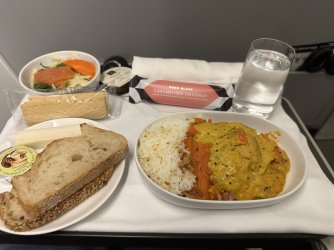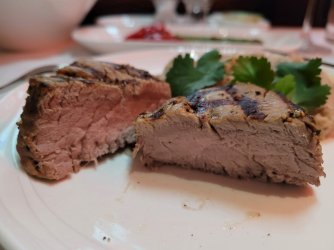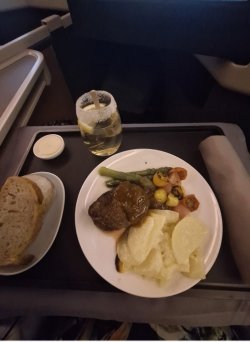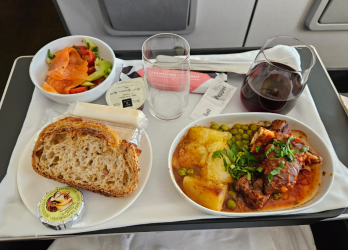No insensitivity intended -- for me, the issue is that using any word regardless of origin that isn't likely to be understood by most people is likely to confuse people, which may make them feel embarrassed and thus it comes across as elitist/pretentious. The point I think is to make the menu accessible to people to understand.
My background is primarily Nordic, which isn't exactly a region most airlines are going to run to for culinary inspiration, but if they did, yes, I would consider it "pretentious" to use e.g., the Swedish word for meatballs that most people won't know or understand, especially on a route unrelated to Sweden.
Now, if "polpette" were on the menu for Perth to Rome, I'd feel differently (though a descriptor in English might still be helpful).
It's a fine balance that is weird to resolve. Not defending QF here but this is not as easy as one thinks.
"Polpotte" is Italian style meatballs. The Italian identity comes from the inclusion of cheese (e.g. Parmesan), breadcrumbs and Italian herbs to the mix.
You could say "Italian meatballs" (as opposed to Swedish meatballs), but then some might not know why it was necessary to call them "Italian". If you just said "meatballs", someone might think it's a waste of a dish.
At what point do you call it in terms of dishes not being termed in their origin. For example:
- Coq au vin (red wine chicken)
- Crème brulée (toffee-topped egg custard)
- Salad niçoise (tuna salad with olives, green beans and potato)
- Pannacotta (cooked cream pudding)
- Pavlova (hard and soft meringue cake)
- Vol-au-vent (puff pastry tart)
- Chicken parmigiana (fried breaded chicken)
- Fois gras (fatty duck liver)
- Babaganoush (eggplant whipped with tahini)
- Kibbeh (Arabic croquette)
- Arancini (fried risotto balls)
- Bresoala (dried sliced beef)
- Haggis (chopped heart and lungs, boiled in a wee sheep's stomach - according to Groundskeeper Willie) (OK I made this one up: wouldn't have an airline in the world brave enough to serve or reinterpret that on board)
One that gets across many airlines is ingredients. Qantas, US airlines and BA often qualify their ingredients with who supplied them or which region they come from. I'm sure there's people who don't care and/or are confused as to why that needs to be explained (viz. chicken is chicken; prawns are prawns, who cares if they come from Spencer Gulf). Asian airlines often have cuisine that features quite exotic ingredients, some with no good translation into English. Last time I flew Asiana (long time ago), the Korean meal came with "side dishes" (in Korean, these were banchan) that were never elaborated or explained either by the menu or the FAs. I'm sure many have been confused by a type of fish, fungus or plant they've never heard of before.
Luke Mangan - both when he was organising VA's catering as well as his food being featured in his Sydney restaurant - was French inspired. Yep plenty of French named dishes that didn't make sense to me at the time. Pretentious? Or am I just uncultured?
To what degree do you "deculture" something because not enough people understand what it is?
I suppose they should name the dishes according to what an average Australian would recognise, i.e. get someone off the street and run the menu by them.
Another approach would be to explain the menu items along with the name of it. The Asian airlines are good at this, e.g. "Fried Kwey Teow - rice noodles wok fried with chicken, prawns etc." I would still suspect that FAs working for Asian airlines would be very good at fielding questions from passengers about the meaning of their food.
Some would say that one of life's adventures is being able to experience food that you have no idea about.......







